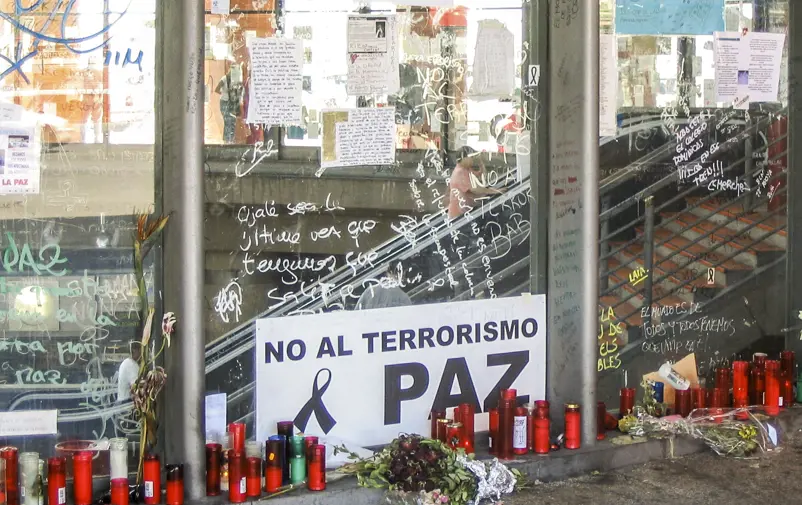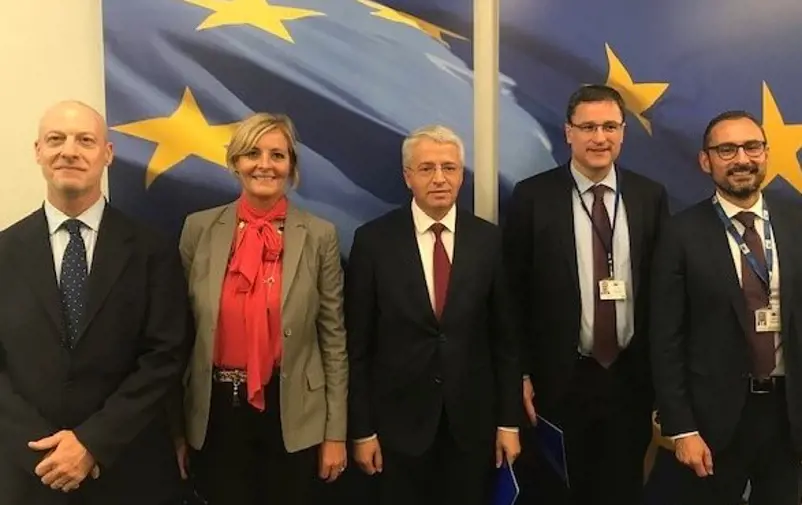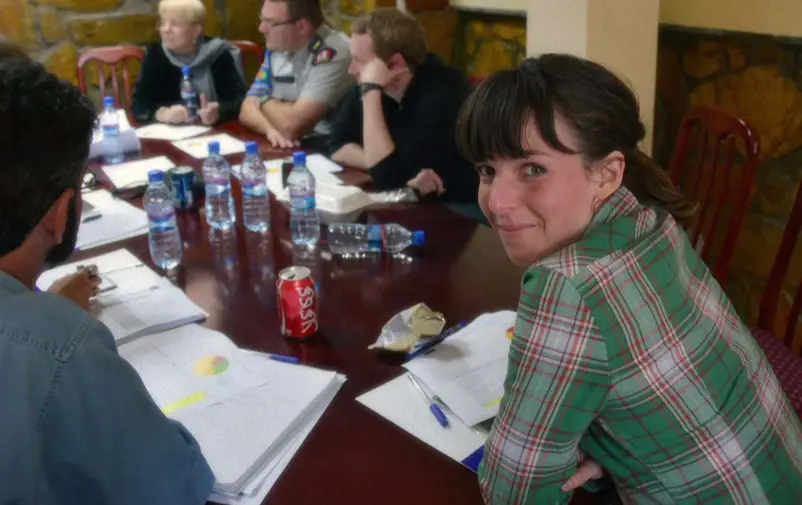Counterterrorism key to EU’s work for peace, security and development
On 11 March 2004, in the middle of rush hour, commuter trains explode at three stations in the Spanish capital Madrid. The bombings caused 2,000 wounded and 191 dead in the worst attack that has occurred in Europe in peacetime. The following year the EU adopts a strategy to combat terror.After several deadly attacks in European capitals by Islamist extremists, the fight against terror becomes a high priority issue for the EU. Gradually, the union’s civilian crisis management missions, within the framework of the common security and defence policy, gain a more significant role in counterterrorism.
– Terrorism is a severe threat to our security, democratic values, human freedoms and rights. Mainly as it aims to hurt and scare innocent people, says Anna Reece.
She is one of the civilian advisers on secondment from FBA to the European External Action Service, EEAS, in Brussels. Counterterrorism is primarily a national responsibility for the EU member states’ governments. The guiding principle is that all 27 member states have to agree on the common foreign and security policy.
Anna Reece’s task is to strengthen the cooperation with countries outside of the EU to prevent terrorism; from recruitment and radicalization to funding. The work is conducted with an emphasis on human rights and respect for international law when it comes to prosecuting terror crimes.
Control over the union’s borders is crucial to protect the EU’s citizens. An active work addressing global terrorism is ongoing, in close cooperation with neighbouring countries and international organizations like the UN and the OSCE, where counterterrorism is also high on the agenda.
EU has taken action to counteract recruitment both within the union and in partner countries. The EU is also strengthening its ability to prevent terror attacks and to act efficiently when they occur.
– EU supports third countries in many different ways. We advise decision-makers on risks and how the EU best can assist, for instance, by financing capacity building and giving expert support, for them to be able to improve security for their citizens. This is also a way to improve our security, so it is a win-win situation, Anna Reece says.
Her portfolio consists of the Western Balkan area, where a high percentage of the population travelled to Syria and Iraq to join the IS. These two countries are on her desk too, since she monitors issues regarding returnees to Europe.
Turkey a transit country
Her responsibilities also include Turkey – a key actor for the EU when it comes to counterterrorism. IS fighters often pass Turkey on their way in and out of Syria and Iraq. Moreover, Turkey hosts 3.5 million Syrian refugees, and it is a transit country for many other nationalities who try to enter Europe.
– There is some concern that terrorists might hide where there is an influx of refugees, which happened in relation to the attacks in Paris 2015 and Brussels 2016. As a result, the EU has increased the possibilities for the border police to use biometrical data and to control identities in the databases of Interpol and Europol, to detect if a passport is stolen or if the person is an internationally wanted criminal, Anna Reece explains.
Around 5.000 European citizens have left their countries to join the IS. Estimations indicate that the global figure might be 30.000-40.000 individuals from 60 countries. Many of them have died during fighting or fled to nearby countries. Others returned home before adequate legislation to bring their cases to court was put in place.
– A military campaign has reduced IS territory, but they are still spreading their propaganda in social media, encouraging their supporters to carry out attacks wherever they are. All the time, we get better and act faster to detect and remove terror propaganda, in cooperation with the private sector. But terrorists continuously find new ways, Anna Reece says.
Experts now study what kind of security risks modern technology such as 5G can hold, as it brings new possibilities, for instance higher speed when sharing data. IS has skillfully and continuously taken advantage of modern technology. They use new platforms to spread their messages and recruit followers. Anyone can buy a drone and make a bomb with instructions provided on the Internet. The fight is not over; several difficult questions remain.
– Do we have appropriate legislation? How do we deal with returnees? There are many challenges both within the EU and in our partner countries. The handling and administration are very resource-intensive for all governments concerned. My role is to make sure that the EU, in the best possible way, gives support to partner countries to handle the problem, says Anna Reece.
EU’s budget for internal security has grown enormously. It contains everything from programmes promoting the rule of law and democracy, reforming the security sector, and enhancing respect for human rights to anti-radicalization measures in prisons. Anti-radicalization and re-integration into civil society are current issues, as more family members of IS fighters are now trying to leave former strongholds and come home.
An ambitious proposal to anti-radicalization legislation is now under negotiation in the EU parliament and subject to the EU legislative process. If approved, it will impose stricter rules for Internet companies. While the focus still is on IS and al-Qaeda, Boko Haram in Nigeria and al-Shabab in Somalia remain strong and might risk spreading, which can affect the EU. In addition, there is an escalation of political violence related to right- and leftwing extremism in a growing number of countries, that demands active work.
Radicalization is driven by various factors; such as social exclusion, poor mental health, lack of education or work opportunities and anger with corruption in public administration of the state. Therefore, efforts to counteract radicalization have to be adapted to the situation in each country.
– Anti-radicalization measures take different forms in Stockholm and Tunis, says Anna Reece.
– Civil society plays an important role in mitigating the recruitment of young people to violent extremist organizations, by offering meaningful alternatives in contexts where they can get a sense of belonging, she concludes.
Photo 1: Kyller Costa Gorgônio, Madrid Atocha 2004.
Foto 2: Anna Reece and colleagues together with the Albanian Minister of Interior when the EU and Albania signed an action plan for counterterrorism and the prevention of radicalization.









 >
> >
>

